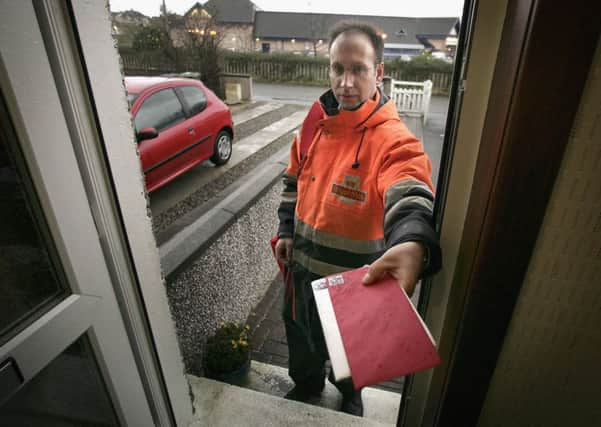Anti-fraud drive stops three million scam letters reaching target


The mail delivery service said it has taken steps to protect consumers from scam mail which can include invitations to participate in lotteries with fake prizes and letters from people posing as clairvoyants.
It began its crackdown on scam letters in November 2016, when it launched an industry-wide response to tackle fraudulent mail at its source.
Advertisement
Hide AdAdvertisement
Hide Ad“We are committed to doing everything we can to stop this fraudulent material from reaching UK households,” said Stephen Agar, managing director of letters at Royal Mail. “We continue to deploy a range of different initiatives to keep one step ahead of the scammers.”
Last March, Royal Mail announced changes to the terms and conditions governing bulk mail contracts, which enabled it to follow up on solid intelligence by refusing to carry mail that is suspected to be fraudulent. Shortly afterwards, it launched a second initiative where it contacted households receiving high volumes of scam mail by Special Delivery. Under the scheme, Royal Mail blocks and impounds scam mail at its major distribution centres before it reaches the customer’s letterbox. Legitimate business and personal mail continue to be delivered to the customer in the usual way.
Thousands of frontline workers at Royal Mail have been trained in how to identify scam mail and spot potential victims of scam mail, while Trading Standards has also worked with the mail delivery firm – as well as other organisations including Age UK – to launch website Friends Against Scams, which offers advice and information about how to avoid becoming a victim of a scam.
Another joint initiative with the National Trading Standards Scams Team was introduced in 2014, to create a new process for terminating the mailings of companies that send fraudulent mail.
Nina Ballantyne, from Citizen’s Advice Scotland’s Consumer Futures Unit, said: “Scams can impact negatively on consumers in a number of ways, eg financial loss, psychological harm and inconvenience. They take people’s money and give nothing in return. We need a multi-agency approach to fight this kind of fraud, and Royal Mail’s actions are a welcome part of that.”